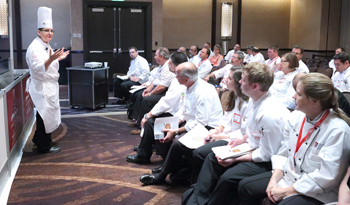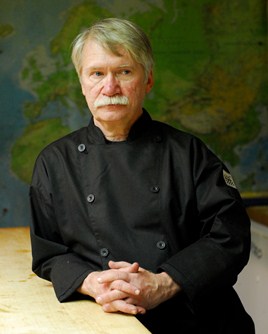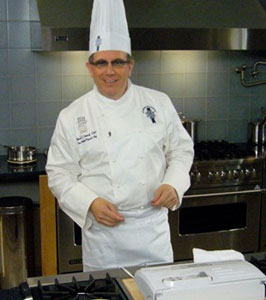Guest Speaker: My Path to My Passion
Wednesday, 04 September 2013 18:00
 As the American Culinary Federation’s 2013 National Chef Educator of the Year learned from her fourth-grade teacher, to achieve success in the classroom, a good instructor must be able to recognize the learning styles of his or her students and adjust his or her teaching style accordingly. Because every student deserves a Miss Farber.
As the American Culinary Federation’s 2013 National Chef Educator of the Year learned from her fourth-grade teacher, to achieve success in the classroom, a good instructor must be able to recognize the learning styles of his or her students and adjust his or her teaching style accordingly. Because every student deserves a Miss Farber.
By Leslie Eckert, CCE, CWPC, MBA
“It takes time to discover what works for you.”
As a child in elementary school I learned differently from all the other kids around me. It took me longer to absorb and retain information, and I had to work twice as hard to achieve accuracy with regards to technique. I was labeled a slow learner in second grade and attended summer school just to keep up with my third-grade class. Fourth grade came like all the other grades, but I soon realized on the first day of class this year was going to be different.
Miss Farberwas an incredible teacher who made learning fun, easy and exciting, and thinking back now, her style of teaching was so different from my previous teachers. Miss Farber incorporated games, pictures, role-playing, colors and sounds in our daily learning and promoted a learner-centered classroom. It was an incredible year, and I missed Miss Farber as I entered into fifth grade, where I found myself confronted with the old style of teaching and learning. Was the magic of learning gone for good?

 Simply preparing for your classes and delivering material is never sufficient. You have an obligation to yourself, your students and your institution to stay in touch with the industry you represent by building your personal, professional brand.
Simply preparing for your classes and delivering material is never sufficient. You have an obligation to yourself, your students and your institution to stay in touch with the industry you represent by building your personal, professional brand. As cooks, we exist to express ourselves, learn and work together as a team and produce some amazing art that people in the dining room will eat, smell and enjoy.
As cooks, we exist to express ourselves, learn and work together as a team and produce some amazing art that people in the dining room will eat, smell and enjoy. Le Cordon Bleu graduates 13,000 students a year. As this author reveals, the biggest change among U.S. schools involves teaching interpersonal skills so that successful grads know what’s going on all over the business.
Le Cordon Bleu graduates 13,000 students a year. As this author reveals, the biggest change among U.S. schools involves teaching interpersonal skills so that successful grads know what’s going on all over the business.